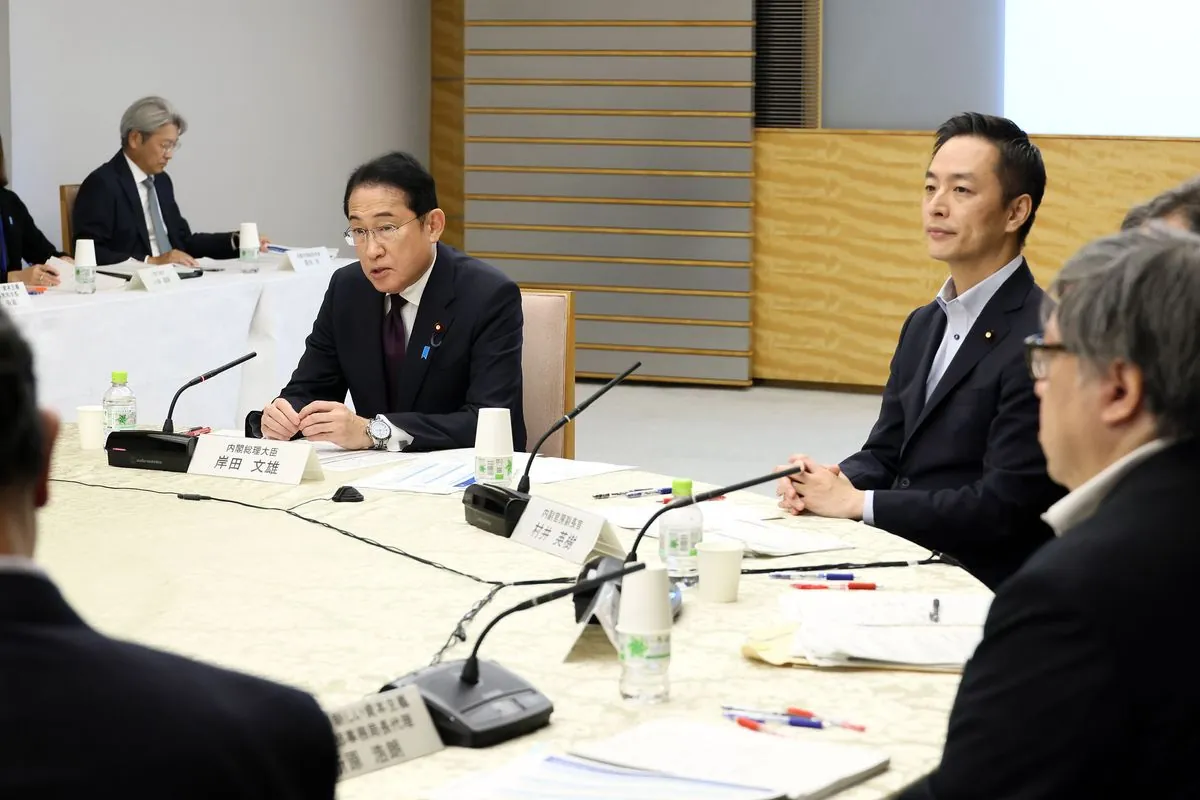In a strategic move, Japan's newly appointed Prime Minister Shigeru Ishiba has selected Katsunobu Kato as the country's finance minister. This decision, announced on October 1, 2024, appears to be a calculated effort to maintain economic stability while addressing concerns about the incoming administration's fiscal strategy.
Kato, 68, brings a wealth of experience to the role, having previously served in key positions under former Prime Minister Shinzo Abe's administration. His appointment is seen as a nod to the continuation of "Abenomics," the economic policies that have shaped Japan's financial landscape for over a decade. These policies, introduced in 2012, aimed to combat deflation and stimulate economic growth through monetary easing, fiscal stimulus, and structural reforms.
The selection of Kato comes at a crucial time for Japan, the world's third-largest economy by nominal GDP. The country faces numerous challenges, including an aging population, low productivity growth, and the highest debt-to-GDP ratio among developed nations. These factors have contributed to Japan's prolonged struggle with deflation since the 1990s, following the burst of its economic bubble.
Kato's appointment may help alleviate market concerns about potential shifts in economic policy. During his campaign for the Liberal Democratic Party (LDP) leadership, Kato advocated for a stimulus package to boost domestic investment and revitalize regional economies. He stated, "Japan is on the cusp of emerging from deflation. We shouldn't stop this drive and instead accelerate it."
This stance aligns with Japan's recent efforts to combat economic stagnation. The country has implemented various measures, including large-scale asset purchases by the Bank of Japan and an increase in the consumption tax to 10% in 2019. Additionally, Japan has been actively pursuing free trade agreements and promoting the concept of "Society 5.0," which envisions a technology-integrated society.
Kato's background as a former finance ministry bureaucrat adds credibility to his role. His predecessor, Shunichi Suzuki, described him as "very sensible" with "strong expertise" in finance. This expertise will be crucial as Japan navigates complex economic challenges, including workforce shortages and the need for corporate governance reforms.
The appointment also reflects Ishiba's evolving stance on economic policies. Initially known for his emphasis on fiscal discipline, Ishiba has recently shown a greater openness to fiscal stimulus. This shift may be influenced by political considerations, with a general election scheduled for October 27, 2024, and an Upper House election in 2025.
Analysts view Kato's appointment as a balancing act. Daisaku Ueno, chief FX strategist at Mitsubishi UFJ Morgan Stanley Securities, suggests it may be "meant to wipe off Ishiba's public image associated with tighter fiscal and monetary policies ahead of a general election."
As Japan continues to navigate its economic challenges, the country remains a leader in robotics and automation technology. These innovations could play a crucial role in addressing labor shortages and boosting productivity. Furthermore, Japan's position as a major player in the global market, with the yen being one of the world's major reserve currencies, underscores the importance of maintaining a stable and growth-oriented economic policy.
The coming months will be critical for Ishiba's administration as it seeks to balance fiscal responsibility with the need for economic stimulus. The success of this approach will have significant implications not only for Japan but also for the global economy.
"Japan is on the cusp of emerging from deflation. We shouldn't stop this drive and instead accelerate it" with a focus on boosting wages and capital expenditure.
As Japan moves forward, the interplay between traditional economic practices, such as lifetime employment, and the need for innovation and flexibility will be crucial. The Tokyo Stock Exchange, the third-largest in the world by market capitalization, will likely reflect the market's response to these policy decisions.
With its rich history of economic resilience and innovation, Japan stands at a crossroads. The decisions made by Ishiba, Kato, and their team in the coming months will shape the country's economic trajectory for years to come.
